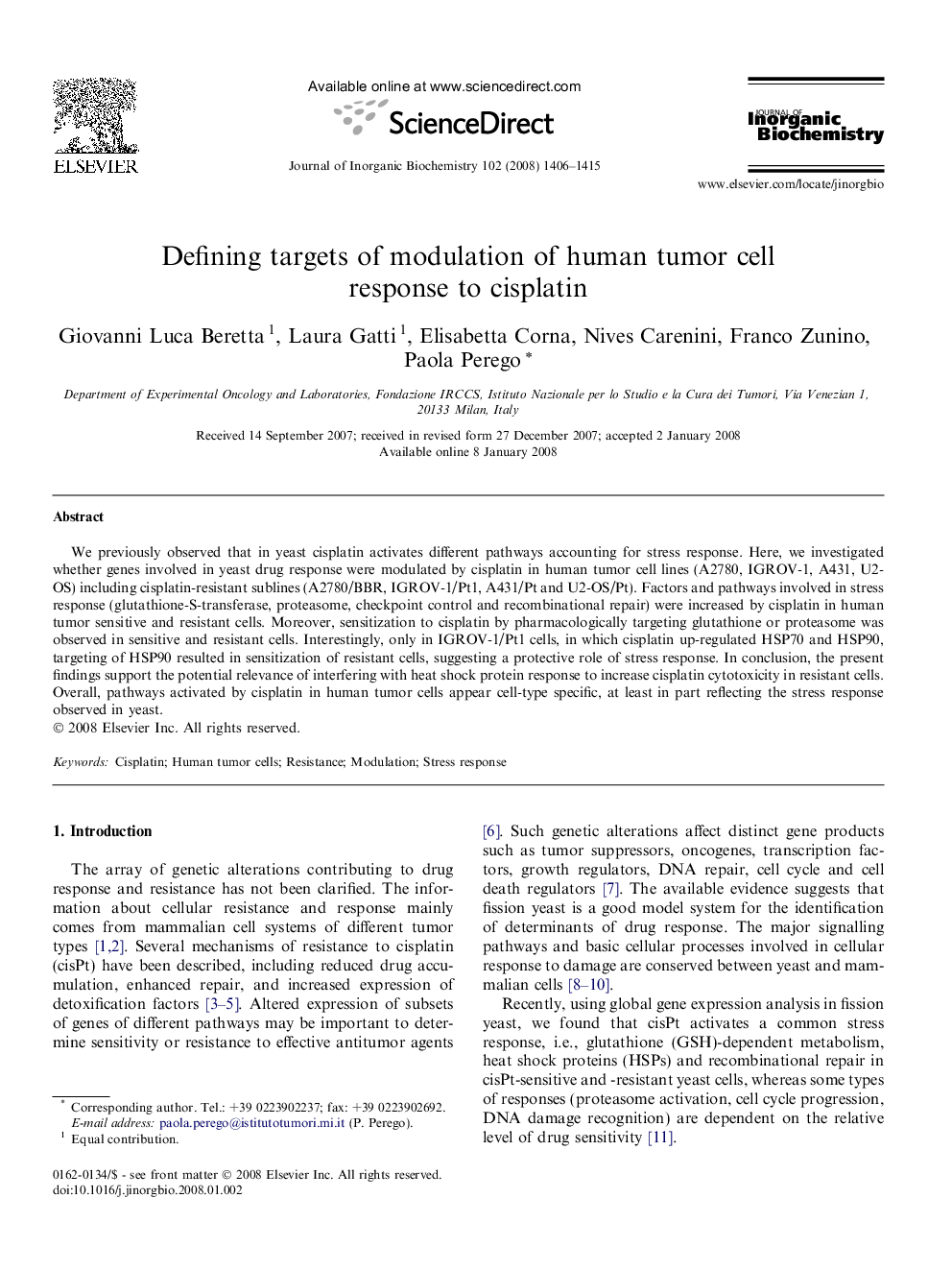| Article ID | Journal | Published Year | Pages | File Type |
|---|---|---|---|---|
| 1316499 | Journal of Inorganic Biochemistry | 2008 | 10 Pages |
We previously observed that in yeast cisplatin activates different pathways accounting for stress response. Here, we investigated whether genes involved in yeast drug response were modulated by cisplatin in human tumor cell lines (A2780, IGROV-1, A431, U2-OS) including cisplatin-resistant sublines (A2780/BBR, IGROV-1/Pt1, A431/Pt and U2-OS/Pt). Factors and pathways involved in stress response (glutathione-S-transferase, proteasome, checkpoint control and recombinational repair) were increased by cisplatin in human tumor sensitive and resistant cells. Moreover, sensitization to cisplatin by pharmacologically targeting glutathione or proteasome was observed in sensitive and resistant cells. Interestingly, only in IGROV-1/Pt1 cells, in which cisplatin up-regulated HSP70 and HSP90, targeting of HSP90 resulted in sensitization of resistant cells, suggesting a protective role of stress response. In conclusion, the present findings support the potential relevance of interfering with heat shock protein response to increase cisplatin cytotoxicity in resistant cells. Overall, pathways activated by cisplatin in human tumor cells appear cell-type specific, at least in part reflecting the stress response observed in yeast.
